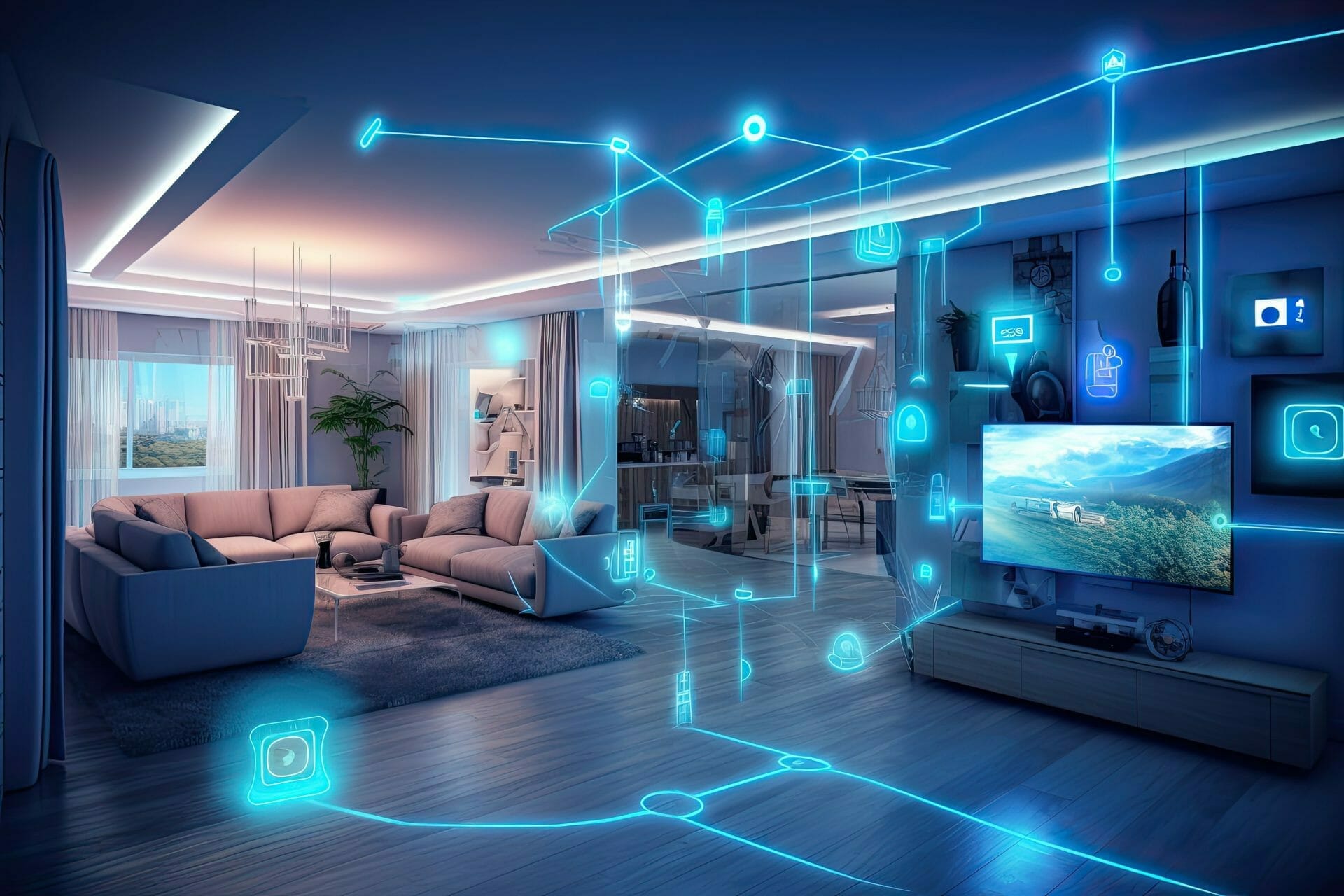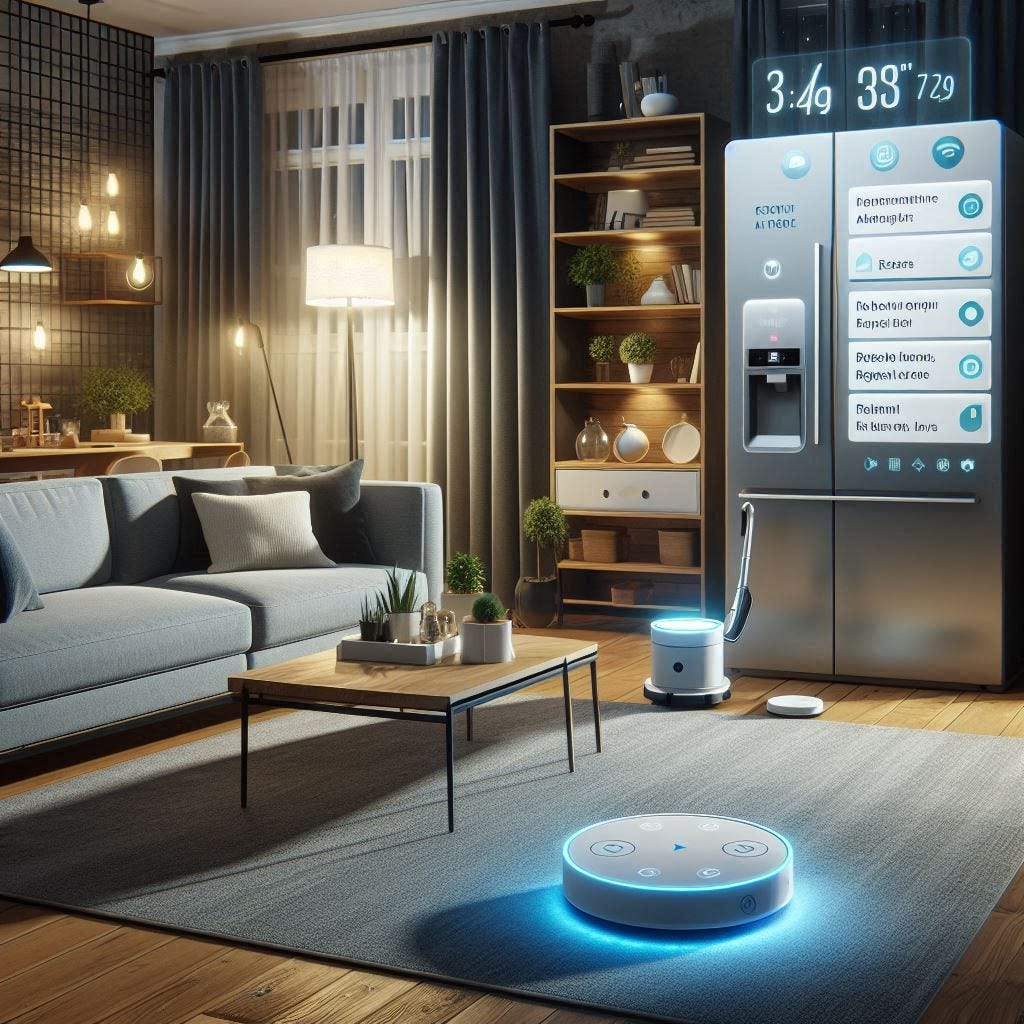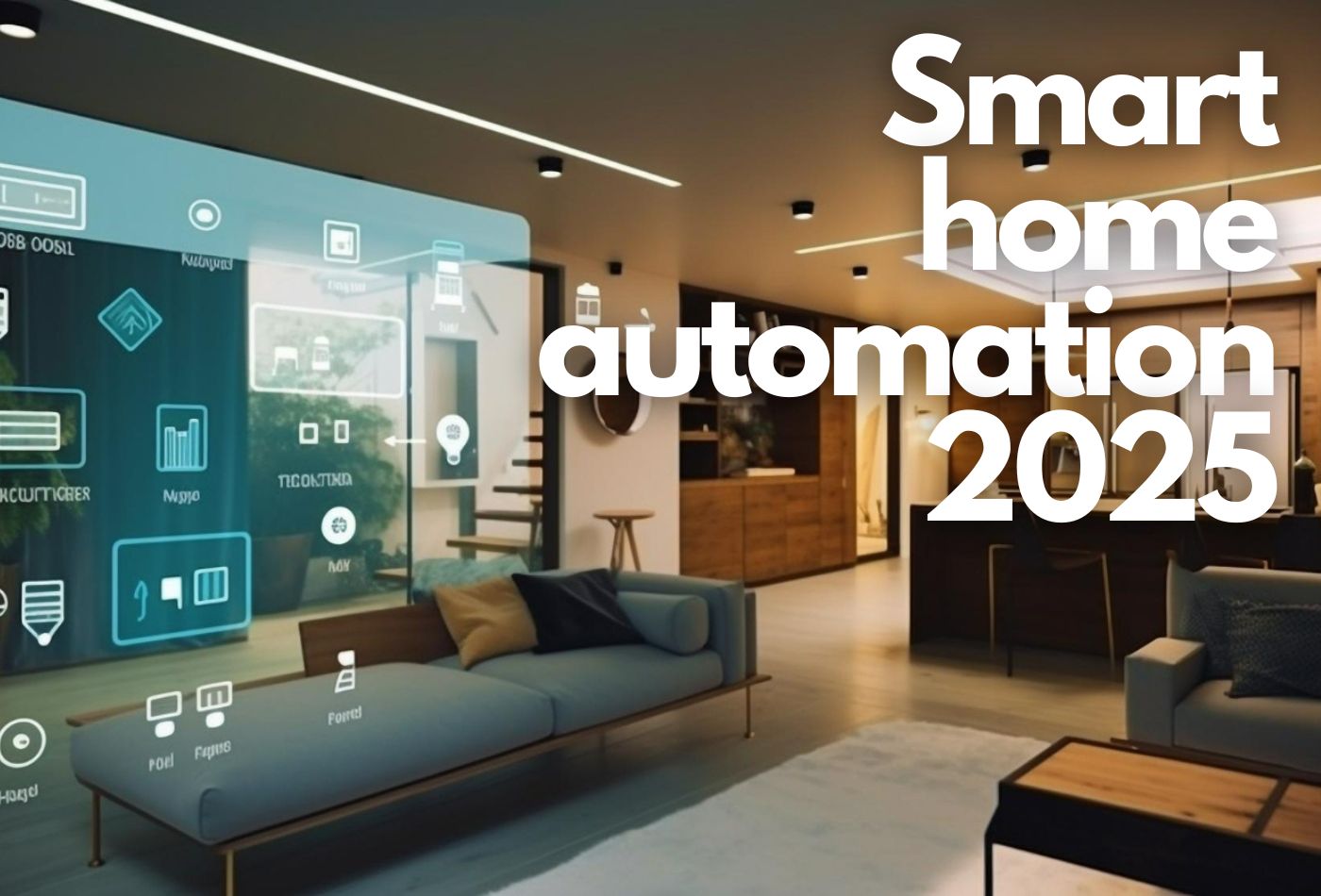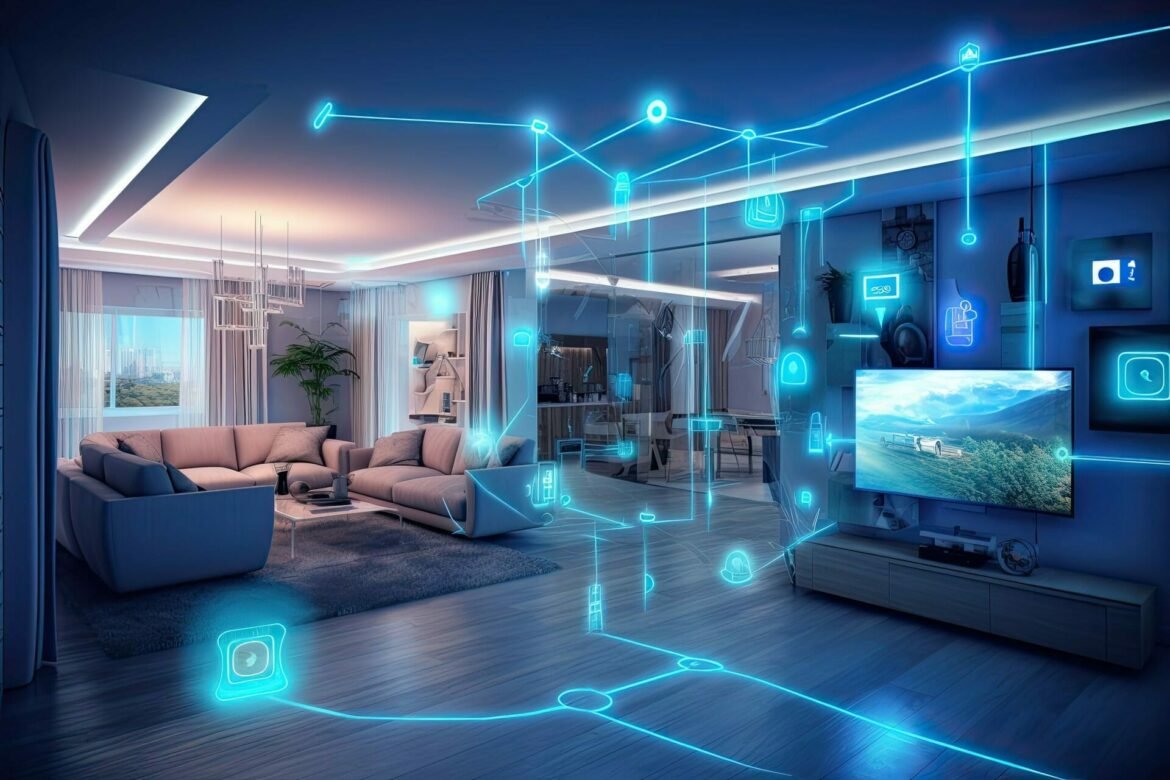
Understanding Smart Home Technology
Definition of Smart Home Tech
Smart home technology refers to a suite of devices and systems that enable homeowners to control their home’s functions remotely or automatically through the internet. Imagine being able to adjust your thermostat from a beach vacation or turning off lights at home while lying in bed. This technology encompasses a variety of devices designed for comfort, convenience, and conservation.
Evolution of Smart Home Devices
The evolution of smart home devices has seen rapid transformation over the past few decades. In the early days, smart devices included simple remote controls for doors or lighting. Now, technological advancements have led to:
- Voice-controlled assistants: Devices like Amazon Alexa and Google Home that respond to commands.
- Automated security systems: Surveillance cameras and alarms that can be monitored from anywhere.
- Smart appliances: Refrigerators that can track food inventory or ovens that allow remote cooking.
As providers innovate, the future holds even more exciting developments in smart home integration. Embrace the journey into the future of living in a connected space!

Advantages of Smart Home Technology
Convenience and Automation
One of the standout advantages of smart home technology is the unmatched convenience and automation it provides. Picture starting your day without having to scramble to turn on the coffee maker or adjust the thermostat. Instead, everything is set to your preferences automatically.
- Scheduling: Program your devices to perform tasks at specific times.
- Remote access: Control everything from your smartphone, even when you’re miles away.
Energy Efficiency and Cost Savings
Smart home technologies significantly contribute to energy efficiency and cost savings. Consider smart thermostats that learn your habits and adjust temperatures accordingly, potentially lowering utility bills by up to 15%.
- Energy monitoring: Track and manage energy usage in real time.
- Automated lights: Turn off lights automatically when rooms are unoccupied.
Enhanced Security and Safety
When it comes to security, smart home technology takes homeowner safety to a whole new level. Imagine receiving instant alerts if a window is opened or if there’s unusual activity outside.
- Smart security cameras: Monitor your home anytime, anywhere via your phone.
- Smart locks: Grant or revoke access remotely, ensuring peace of mind.
With these advantages, it’s clear that smart home technology is not just a luxury; it’s a revolutionary way of living that enhances daily life. As you delve deeper into the world of smart homes, the future is indeed now!

Types of Smart Home Devices
Smart Assistants
Diving deeper into smart home technology, one can’t overlook the pivotal role of smart assistants. These voice-activated devices, like Amazon Echo or Google Nest, are like having a personal assistant at your beck and call.
- Voice commands: Control music, set reminders, or ask for the weather with just your voice.
- Home automation hub: Coordinate different smart devices seamlessly.
Smart Lighting Systems
Next, we have smart lighting systems that not only enhance ambiance but also improve energy efficiency. Imagine walking into a room and having the lights automatically adjust to your needs.
- Color and intensity control: Change light colors for different moods.
- Scheduling and automation: Set lights to turn on and off at specific times.
Smart Thermostats
Smart thermostats are game-changers in energy management. These devices learn your habits, aligning temperature settings with your lifestyle.
- Remote control: Adjust temperatures from anywhere via your smartphone.
- Energy savings: Save up to 15% on heating and cooling bills.
Smart Home Security Systems
Finally, smart home security systems provide peace of mind with advanced monitoring features.
- Real-time alerts: Get instant notifications of suspicious activities.
- Remote access: View your home’s security feeds live from your device.
The variety of smart home devices is vast, creating endless opportunities to transform your living space into a fully connected haven. So, as you explore these innovative options, remember that the future is indeed now!

Integration and Compatibility
Interconnectivity of Devices
As you delve into the realm of smart home devices, the significance of integration and compatibility becomes crystal clear. Interconnectivity allows various devices to communicate and work harmoniously. For instance, imagine your smart thermostat adjusting the temperature when your security system detects that you’ve left home.
- Unified control: Manage multiple devices from a single app, simplifying your daily routines.
- Automation chains: Create sequences where one device triggers another, enhancing efficiency.
Compatibility with Existing Home Infrastructure
A major concern for many homeowners is whether smart devices will seamlessly blend with their existing infrastructure. Fortunately, most smart home technologies are designed to complement traditional systems.
- Easy installation: Many devices require minimal or no renovations.
- Wi-Fi reliant: Many smart devices connect directly to your existing Wi-Fi network, making setup hassle-free.
This compatibility eases the transition into a smart home, enabling everyone to enjoy the benefits without extensive overhauls. The future is brighter than ever, showcasing the seamless blend of innovation with everyday living!

Emerging Trends in Smart Home Tech
Artificial Intelligence in Smart Homes
As we explore the exciting landscape of smart home technology, one prominent trend is the integration of Artificial Intelligence (AI). These intelligent systems learn from user behavior, making homes more intuitive.
- Personalized experiences: AI can adjust lighting and temperature based on your preferences, creating an environment tailored just for you.
- Predictive analytics: Anticipate your needs, like brewing coffee when you usually wake up.
Internet of Things (IoT) Integration
The Internet of Things has revolutionized inter-device communications. You can now connect everything from refrigerators to heating systems, all sharing data seamlessly.
- Enhanced automation: Devices work together to optimize energy use and streamline tasks.
- Remote monitoring: Keep an eye on your home’s systems, even when you’re away.
Voice and Gesture Control
The convenience of voice and gesture control in smart homes is growing immensely. Imagine adjusting your lights or music just by speaking or waving your hand.
- Hands-free operation: Perfect for busy moments when you can’t reach your device.
- Accessibility: Offers ease for individuals with mobility challenges.
With these emerging trends, the future of smart home technology is indeed bright, poised to enhance everyday living in remarkable ways!

Challenges and Concerns
Privacy and Data Security
While the allure of smart home technology is undeniable, several challenges and concerns arise, particularly around privacy and data security. With devices constantly collecting data, it’s essential to ensure that personal information remains protected.
- Data exposure: Many devices link to the cloud, which can be vulnerable to breaches.
- User awareness: Understanding privacy policies can be daunting; not everyone reads through them comprehensively.
Reliability and Dependability
Another significant concern is the reliability and dependability of smart home systems. Imagine coming home after a long day only to find that your smart lock isn’t responding.
- System failures: Connectivity issues can lead to malfunctioning devices.
- Overreliance on technology: Dependence on automated systems can cause anxiety during outages.
By addressing these challenges thoughtfully, homeowners can enjoy the vast benefits of smart home technology while safeguarding their homes and their peace of mind. The journey into this smart realm is promising, but awareness remains crucial.

Future Outlook of Smart Home Technology
Predictions for Smart Home Industry Growth
Looking ahead, the smart home technology industry is set to experience exponential growth. As more homeowners recognize the benefits of automation, expect an influx of innovative devices catering to diverse lifestyles.
- Market expansion: By 2025, the global smart home market is projected to surpass $175 billion.
- Diverse offerings: From energy management systems to enhanced security features, the variety available will only increase.
Impact on Lifestyle and Living Spaces
The implications of this growth extend far beyond devices; it will fundamentally reshape lifestyles and living spaces. Envision a home that adapts to your routines, whether that’s dimming the lights for movie night or adjusting the heating before you arrive.
- Enhanced comfort: A fully automated environment fosters convenience and relaxation.
- Sustainability: Smart homes will promote energy efficiency, contributing to environmental sustainability.
As we navigate this exciting future, embracing smart home technology offers a profound opportunity to enhance daily living, ensuring that the journey continues to be meaningful and purposeful. The future is indeed now!

